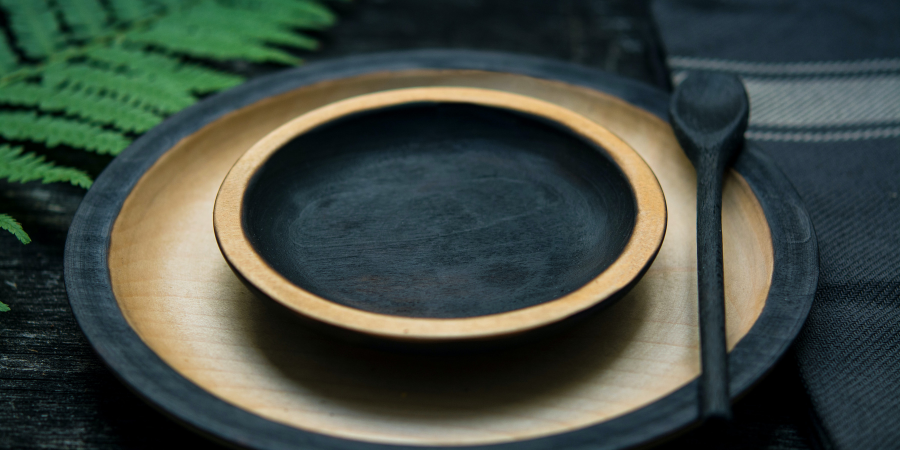
Written by:

Medically Reviewed by:
Last Updated:
February 19th, 2025
Food Addiction Treatment | Food Addiction Rehab
- Select
- Food addiction
- Food rehab
Food addiction is one of the most challenging to conquer, as eating is essential to our survival. It can seem hopeless trying to stay away from certain foods, and whatever the setting, whether that be work, school, or even in our own homes, we will encounter those same obstacles to recovery.
We understand that finding the right food addiction treatment can be daunting, especially as this condition is often misunderstood. However, we at Primrose Lodge would like to assure you that there is food addiction help available, and you are not alone. If you or a loved one needs support and you are unsure of the next steps, read on to find out more information about how food rehab can be a crucial first step in securing a healthier life.
Get food addiction help at rehab
Each of us has our own unique relationship with food, as well as different digestive systems and metabolisms; therefore, it is particularly challenging to question if we have an unhealthy relationship with food and to make the choice to undergo treatment for food addiction. Deciding that you need support can be daunting, especially if you are not entirely sure it is the right move for you. If you are displaying signs of food addiction but remain unsure of the reasons why food addiction treatment is such a necessary step, here are some tips and facts to help inform your decision.
Understand the risks…
Unfortunately, many of us are unaware that food addiction can lead to serious consequences if left unaddressed. Learning more about the dangers can help to remind us that ignoring the problem at hand can lead to a whole host of dangers, such as:
- Health complications as a result of your addiction.
- Antisocial behaviour developed over time.
- Other disorders such as bulimia nervosa.
- Anxiety.
- Depression.
Hear from others in a similar situation…
Talking to loved ones about our food addiction can be difficult and embarrassing, especially when we feel that there is nobody around us to truly empathise with our experiences. While we might feel alone, there are approximately 1.25 million people in the UK who have an eating disorder. You can get food addiction support by seeking out a connection with others around us who have seen treatment first-hand, and fully recovered.
Joining a 12-step programme can also prove very beneficial in addressing your addiction and the next steps to take moving forward. By joining a fellowship of individuals with shared experiences, it can offer hope and strength to all of those who suffer from food addiction.
More than anything, once we start to recognise that food addiction is every bit as dangerous as a compulsion toward alcohol or drugs, for example, we begin to understand that those who do not feel in control of food are just as eligible for treatment as those who display other compulsive behaviours.
How to overcome food addiction at Primrose Lodge
At our specialist rehab centre in Surrey, we believe that the mind and body must be approached together when overcoming food addiction. While food is the symptom of the addiction itself, the underlying cause can arise from deeper places, possibly because of psychological issues like anxiety, trauma or depression. Much like any other illness, recovering from food addiction is not as simple as cutting down our intake or avoiding treats and sugary snacks. You must reach a deeper understanding within yourself about the reasons why your addiction has taken hold. The goal of food addiction treatment is to identify what causes these thoughts and behaviours so that in future, they can be managed. Some common triggers of food addiction are:
- A negative self image.
- A need for comfort that can only be offered through food.
- Having those around you offer food, and it can feel impossible to say no.
- Particular foods have a close link with food addiction; therefore, it is important to talk through and identify your own personal trigger foods that could lead to a setback.
Treatment for food addiction can be provided through a variety of different methods, such as:
Cognitive Behavioural Therapy (CBT)…
This form of treatment is an excellent option as it will help you to understand the specific feelings and thought patterns that have led you to develop an unhealthy relationship with food. CBT also targets more practical elements of treatment, such as planning out meals throughout the day and monitoring food choices.
Group therapy…
Group therapy provides an essential opportunity to observe and gain insight into your disorder in a way that may not have been possible through individual treatment. It also helps to show those suffering that they are not alone.
Individual therapy…
In individual therapy, you will have the chance to be counselled about the underlying issues that may have helped to trigger the addictive behaviour. By building a trusting, healthy relationship with a therapist, you can receive food addiction support and develop effective strategies to prevent relapse.
Recovery from food addiction is possible
It’s important to understand two things; one, overcoming food addiction is entirely possible, and two, food addiction is not a result of any moral failing. It does not mean that you are greedy or lack self-control; it is easy to fall into, and your relationship with food might be a result of something more profound. Unfortunately, more often than not, this mental health condition is not taken seriously.
First steps to recovery
The first step comes with admitting that you have a problem, and then you’re already on track towards getting food addiction help. Research shows us that the sooner someone gets the food addiction treatment they need, the more likely they are to make a full recovery and the first step comes with reminding ourselves that we deserve care and we can make a positive change.






